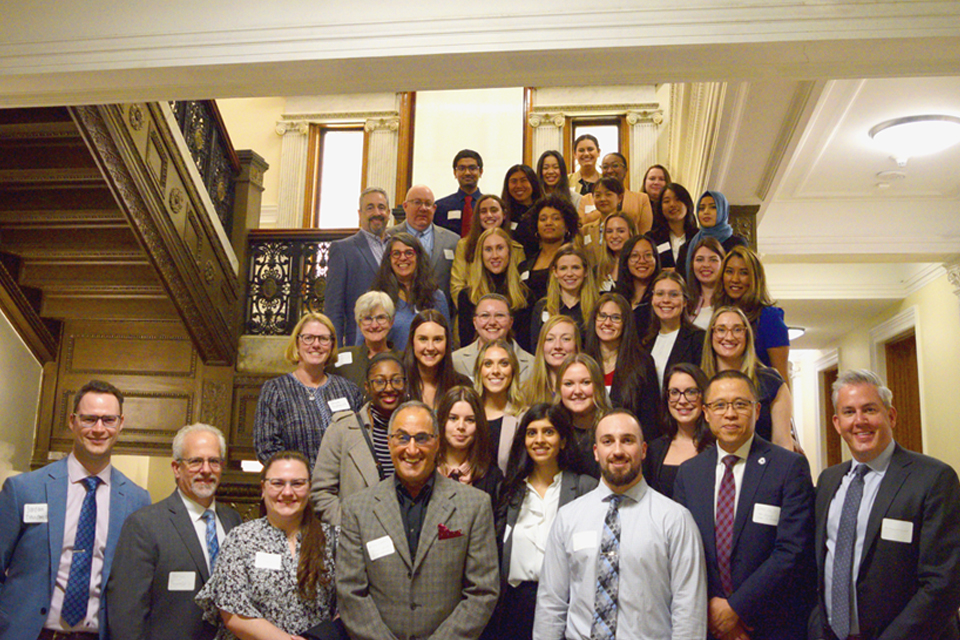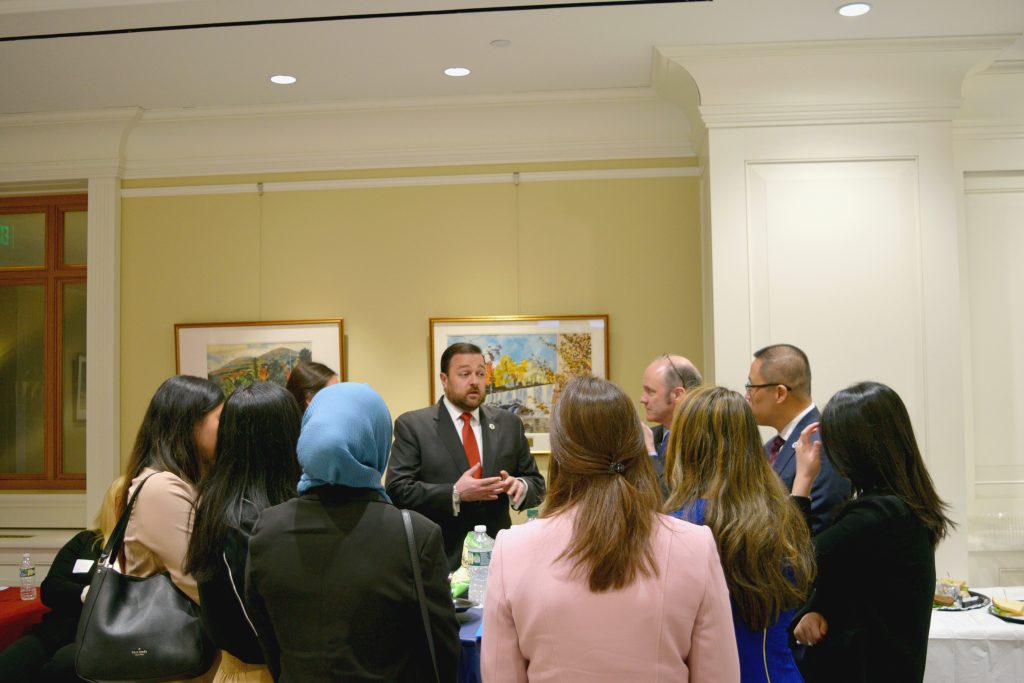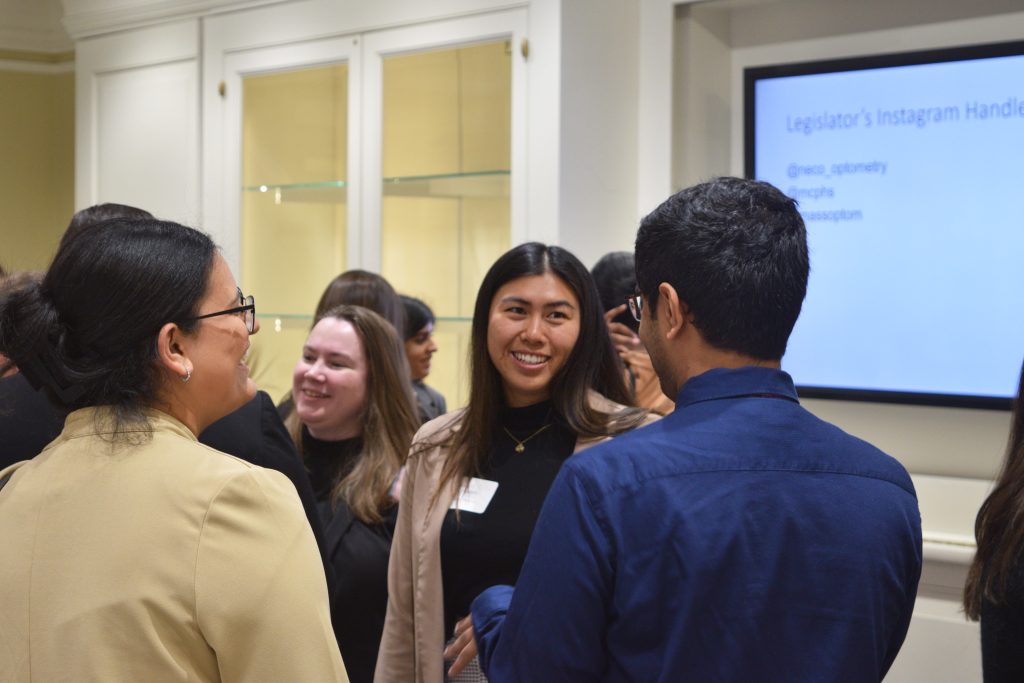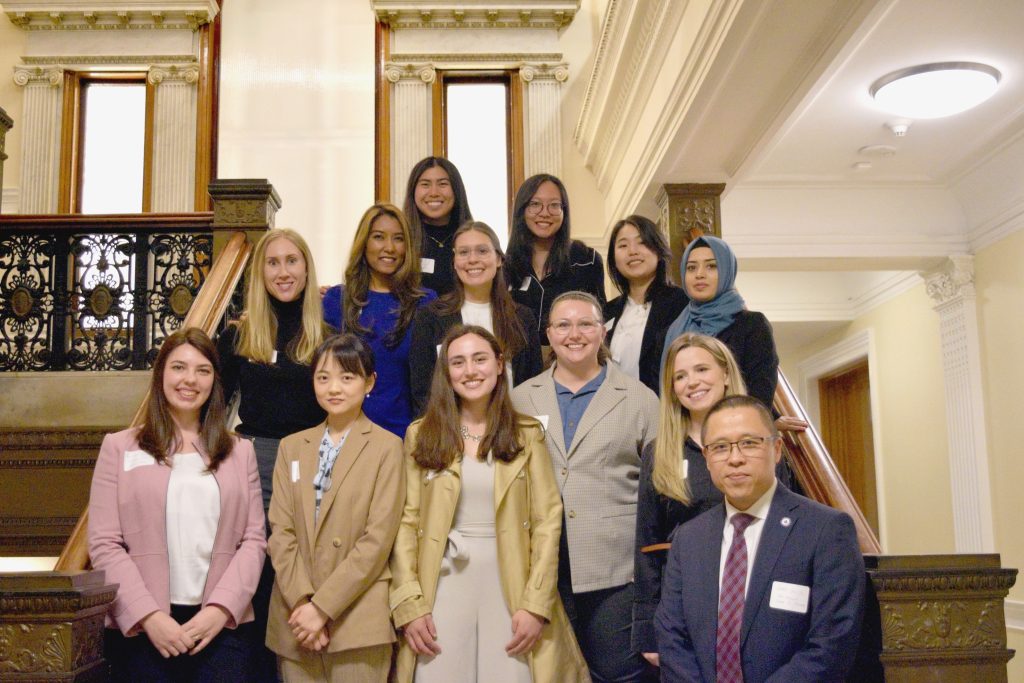Eye Care Advocacy Day at the Massachusetts State House

NECO’s primary focus is on educating optometrists, but it is also important to educate lawmakers as advocates for eye care policies that increase access to care, eliminate vision care disparities, and impact our profession.
In Massachusetts, there are bills making the rounds in the State House right now that can positively impact the practice of optometry and the well-being of our patients.
- House Bill 2132, “An Act to Close the Achievement Gap by Addressing Disparities in Children’s Vision;”
- Senate Bill 116, “An Act Improving Child Eye Care;” and,
- House Bill 3608, “An Act Relative to Updating the Licensure of Optometrists.”
NECO students, faculty, and staff combined efforts with Massachusetts Society of Optometrists (MSO), and Massachusetts College of Pharmacy and Health Sciences (MCPHS) to advocate and educate legislators about the importance of eye care for all. It was an opportunity to share the benefits of creating more accessible pathways to care resulting in improved public health and awareness, a reduction in long-term healthcare costs for the state, and more importantly, improved academic achievement and quality of life for the children of Massachusetts.

House Bill 3608, sponsored by Representative Tackey Chan of Quincy, highlights a need for updated language regarding the licensing of optometrists. The proposed bill will amend the licensing law for optometrists by updating language to be more inclusive, and modernizing educational licensure requirements, penalties, advertising provisions, and references to certain agencies. The current licensing system is administratively burdensome, confusing for new optometrists, and makes it difficult for the public to understand which license their optometrist holds.

Two other pieces of legislation emphasize patient well-being and continuity of care starting at an earlier age. House Bill 2132 and Senate Bill 116 both petition the state to improve how it interacts and tracks the visual health of children residing in Massachusetts. To improve eye health and quality of life for children, Children’s Vision Massachusetts has worked with State Representative Christine Barber and Senator Michael Moore to author legislation that would establish an advisory council to the Department of Public Health and a registry to record vision-screening results and the necessary follow-up treatment for children in the state.

“What we’re seeing in Massachusetts is progress for our profession and ensures we are able to best take care of our patients,” says Dr. Gary Chu, NECO’s Vice President of Professional Affairs. “Optometrists all over the country are dealing with various legislation that can either support or hinder how we treat patients, so it is vital that everyone within optometry stays informed and continues to help educate their patients, communities, and also local lawmakers.”

Massachusetts General Laws Part 1, Title XII, Chapter 71, Section 57 established vision screening as required for children in public schools throughout the Commonwealth, but there is currently no mechanism to ensure that children are receiving treatment for issues diagnosed via the screenings. One study found only 38% of public-school children who failed a screening received follow-up care and 73% of children with eye and vision problems, like amblyopia, would never have their problem corrected. The new bills aim to improve follow-up and treatment so there is greater potential for early detection and limits to permanent damage. Both bills would begin to address the inequities in identification and access to eye care for children across the state.

The work being done at the State House in Massachusetts is an example of how NECO advocates for the profession of optometry and the patients we all serve as optometrists. We aim to change the way people see the world through education and advocacy so one day eye care for all will be a reality not just in Massachusetts, but the world.